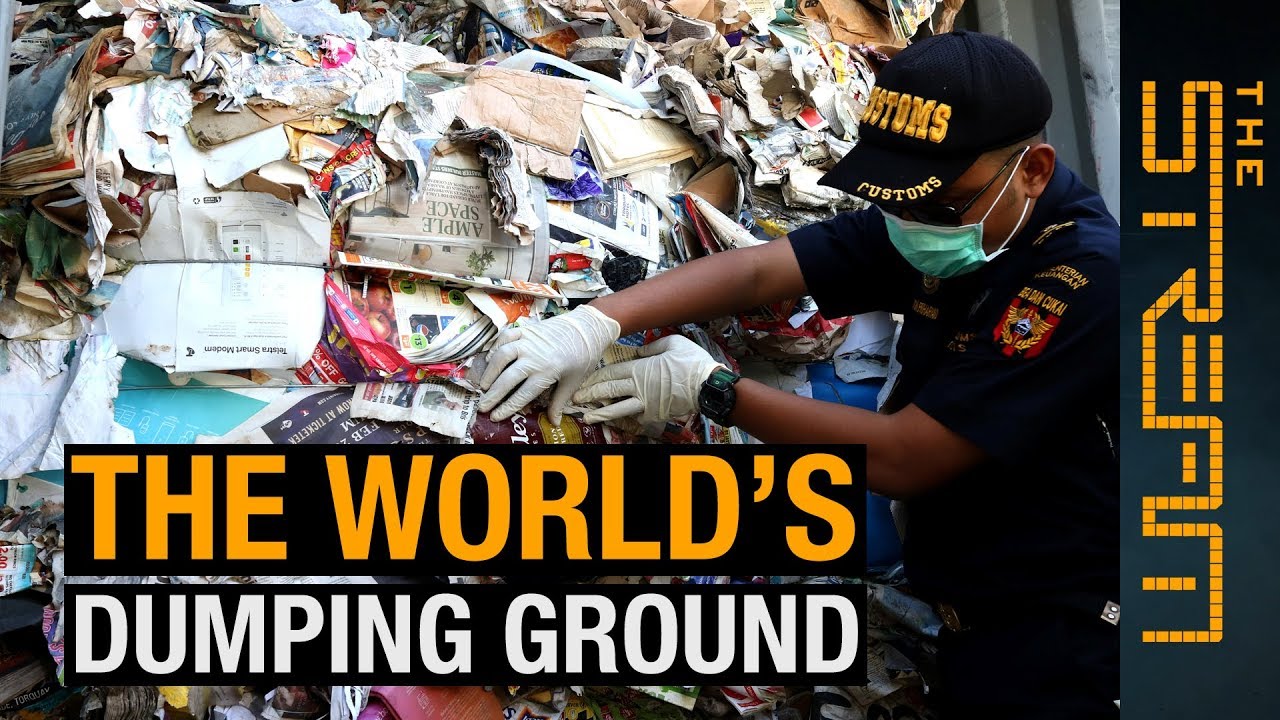Thailand Is Tired of Recycling Your Trash
Summary
TLDRThe video script explores the issue of 'waste colonialism,' where developed countries export waste to poorer nations, particularly in Southeast Asia. It documents Thailand's struggle with the influx of plastic waste, causing environmental and health hazards. The narrative follows a local resident's experience with a nearby recycling plant, revealing the harsh realities of pollution and the industry's impact on communities. It highlights the Thai government's efforts to ban foreign waste imports amid opposition from vested interests and the potential shift of waste dumping to even less capable countries.
Takeaways
- 🌏 'Waste colonialism' is the term used to describe the practice of developed countries shipping their waste to poorer nations, particularly in Southeast Asia.
- 📊 Thailand received approximately 158,000 tons of imported plastic waste from overseas in 2021, highlighting the scale of the issue.
- 🏭 The recycling process can cause significant externalities such as pollution, noise, and harmful fumes that affect local residents.
- 😷 Vinyou Jiaramankong, an accountant living in the Bangkok suburbs, experienced severe health issues due to noxious fumes from a nearby recycling plant.
- 🐦 Dead pigeons found on Vinyou's lawn indicated the severity of the pollution caused by the recycling plant's emissions.
- 🚫 The Thai government has been moving towards banning the import of foreign plastic waste, but faces opposition from profitable companies reliant on these imports.
- 🔍 The distinction between 'plastic scraps' and 'plastic waste' is often blurred, with waste being disguised as scraps to bypass regulations.
- 🌳 The establishment of recycling plants can lead to environmental degradation, as seen with the smoke covering an area in Bangkok.
- 🗣️ Communities in Chon Buri province have organized protests against plastic recycling and manufacturing facilities due to the negative impacts on their health and environment.
- 🌐 The global demand for recycling is driven by the high consumption of plastics, with developed countries lacking the capacity to recycle the waste domestically.
- 🚫 Despite efforts to curb waste imports, the waste is likely to be redirected to even poorer countries with less capacity to manage it, such as Myanmar and some African nations.
Q & A
What is the term used by environmentalists to describe the practice of developed countries sending their waste to poorer nations?
-The term used is 'waste colonialism', which reflects the idea that rich countries are literally dumping their problems onto poor countries.
Why did the narrator visit Thailand?
-The narrator visited Thailand to witness firsthand the process of waste being shipped to poorer countries and the problems it is causing.
What was the speaker's initial perception of recycling before getting involved in the research?
-Before the research, the speaker thought about recycling as a clean and virtuous business, which was wildly out of step with the realities of the industry.
What kind of externalities are caused by the improper processing of imported waste?
-Externalities such as pollution, noise, and fumes can bother local residents, and there can be serious health impacts on people and wildlife.
How did Vinyou Jiaramankong's experience with the recycling plant affect his family?
-Vinyou Jiaramankong and his family experienced noxious fumes coming into their home, leading to health issues like breathing difficulties, headaches, and skin irritation. They also found dead pigeons on their lawn, indicating the severity of the pollution.
What are some of the harmful chemicals that can be emitted from recycling plants?
-Recycling plants can emit harmful chemicals such as dioxin, which has been associated with an increased risk of cancer.
What was the community's response to the plastic recycling and manufacturing facilities in Chon Buri province?
-The community organized protests, with the largest one involving around 700 people, to express their opposition to the facilities due to the pollution and noise they cause.
Why do developed countries send their plastic waste to other countries?
-Developed countries send their plastic waste overseas because they do not have the domestic capacity to recycle all the plastic they consume, and landfills are not a preferred option.
How has the Thai government been addressing the issue of foreign plastic waste imports?
-The Thai government has been moving towards a ban on foreign plastic waste imports, although it acknowledges that it is a gradual process and faces opposition from companies that profit from these imports.
What are the potential consequences if waste flows are redirected to even poorer countries?
-The waste flows may find their way to countries that are less able to cope with the inflows, such as Myanmar or countries in Africa, potentially causing greater environmental and health issues.
What was the recent discovery regarding plastic waste disguised as plastic scraps?
-A container labeled as containing plastic scraps was found to be filled with plastic waste, indicating that some entities are using the classification as a loophole to bring waste into Thailand.
Outlines

This section is available to paid users only. Please upgrade to access this part.
Upgrade NowMindmap

This section is available to paid users only. Please upgrade to access this part.
Upgrade NowKeywords

This section is available to paid users only. Please upgrade to access this part.
Upgrade NowHighlights

This section is available to paid users only. Please upgrade to access this part.
Upgrade NowTranscripts

This section is available to paid users only. Please upgrade to access this part.
Upgrade NowBrowse More Related Video

🌏 Why is Southeast Asia the world's dumping ground? | The Stream

Why The World Sends Its Plastic Trash To Malaysia - Cheddar Explores

Recycling won't solve our plastic problems | All Hail The Planet

Harus Hati-hati Nanganin Sampah Elektronik | Animasi Daur Ulang

Konsepto ng Kolonyalismo at Imperyalismo AP7 Q2 Week 1-2 (Part 2) #depedmatatag

Indonesia "Juara" Buang-Buang Makanan
5.0 / 5 (0 votes)